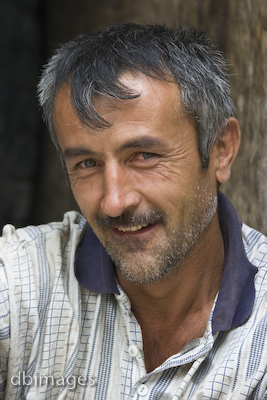
The Tajiks were right up there with Syrians and Iranians (the latter, their kin) in terms of friendliness and warmness to foreign visitors, and we will remember the country very fondly. These portraits are in the order of western lowlands to eastern Pamirs, the direction of our travels.
A beautiful young girl from Penjikent

Elderly Uzbek man, Penjikent. Uzbeks make up some 15% of Tajikistan's population, living predominantly in the west and north. Tajiks were quick to point out that the ethnic Uzbeks of Tajikistan live much more freely than the ethnic Tajiks of Uzbekistan. [See my post of 6.21.]

Some photographs from Dushanbe. Dushanbe, being the largest city and the capital, contains many different ethnic groups, but the people pictured here appear to be Tajik.



Heading into the mountains of eastern Tajikistan, one encounters the Pamiris, who are an Iranian people like the lowland Tajiks but have a distinct (and ancient) culture. I have read it speculated that they are descendants of the ancient inhabitants of Central Asia, the Scythians, who were reported by many historical sources as having light hair and eyes. Pamiris, having lived in mountainous isolation, retain valley-specific idiosyncratic languages and ancient pre-Islamic customs. [See my post of 6.23.]
A Pamiri family living near a high pass, tending livestock for the summer.



Other portraits of Pamiri Tajiks. Note how light some are in coloration.








Along with the last picture, the following were all taken on the high plateau of the eastern Pamirs. The Murgab District is largely Kyrgyz, Tajikistan's second largest minority group. I was generally shocked at how "Asian" Kyrgyz look--I could certainly pass for one!



Two members of a rather beautiful family that we met while out on a hike




Cheeks astonishingly burnt by sun





















